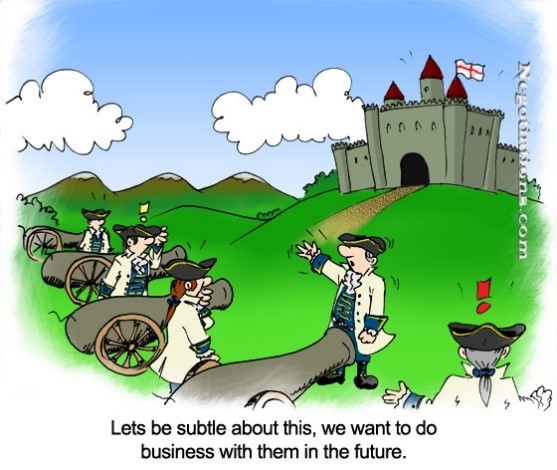Jennifer Pope is an Associate Professor of Marketing and International Business with expertise in sales and negotiations, Grand Valley State University; and Fulbright Scholar at IEDC
1. Plan, Plan, Plan and then plan some more
One of Benjamin Franklin’s many famous quotes really fits here “By failing to prepare, you are preparing to fail”. Planning involves looking at every aspect of the negotiation, from the pre-negotiation tasks to the signing of the contract. The better prepared you are the less likely you will be taken by surprise and sign a bad deal.
2. Approach each sales negotiation as a ‘win-win’ situation.
In today’s business world, negotiation is defined as ‘two or more parties with common (and conflicting) interests who enter into a process of interaction with the goal of reaching an agreement (preferably of mutual benefit)’ (Cellich & Jain 2004). In sales repeat business is key, so by approaching the negotiation as an ‘I win some, you win some’ scenario, you establish trust and likability which keeps customers coming back and hopefully recommending you to others.

3. Know your customer
Research your customer and their business before your first meeting. There are many ways to learn about your customer. Use public information, what is on their website, any press releases, any news articles, other companies, their customers, online reviews, any information you get from them before the initial meeting etc. This will allow you to tailor your presentation to best meet their needs. You want to demonstrate clearly that your product fits their needs better than anything else out there and if you do not know your customer it is difficult to accomplish this.
4. Know your competition and your customer’s competition
Chances are your customer has looked at other companies besides your own, a.k.a. your competition, and is looking for the company that best meets their needs. You need to know what your competition can offer them so that you can differentiate your product from theirs. Knowing this gives you power and makes it harder for your customer to say ‘well, your competitor can do X, can you match it?’ only to find out later that they were ‘exaggerating’.
Knowing your customer’s competition not only gives you insight into what their needs are but also gives you alternatives if this negotiation is not successful.
5. Know your limits
It is very important that you NEVER sign a bad deal for you or your customer. Knowing your limits will help prevent that. Limits include your reservation point (a.k.a. bottom line), your ideal target, and your alternatives. You would also like to have an idea of what your customer’s reservation point is, though you will never know exactly, but by knowing your customer, you can have an idea. Knowing these two reservation points will give you the bargaining zone or the range in which you can successfully negotiate the issue without insulting or turning off your customer.

6. Use ‘deceptive tactics’ carefully
While it may seem odd to talk about deceptive tactics in an IEDC blog, not all deceptive tactics are unethical, the trick is to know where the line is and not cross it. Behaving unethically will only come back to hurt you and your company. However, some ‘deceptive’ tactics are just part of the negotiation process. Traditional Competitive Bargaining, one common deceptive tactic, is simply not sharing all your information at once. For example, if you tell your customer your reservation point from the beginning then you have lost all ability to negotiate. Holding that information in reserve gives you room to have a ‘win-win’ deal. Other deceptive tactics that are common and usually ethical in sales negotiations include bluffing and emotional manipulation.
7. Use your emotions, do not lose them
Speaking of emotions, in sales negotiations, emotions can be used to aid you in your negotiation. The trick is to keep firm control of your emotions and purposefully use them. You can use them to signal that you are happy/ disappointed with the offer or that you are getting close to your reservation point for example.
8. Know your power and how to use it
Sales people gain power in a variety of ways, through knowledge, through position in the company, through expertise or through strength of personality. It is important to know where your power lies and where your customer’s power lies. The more equal the power between you and your customer, the more likely you will be able to negotiate that ‘win-win’ sales deal.
Finally, remember, ‘in business you do not get what you deserve, you get what you negotiate’ - Chester L. Karrass